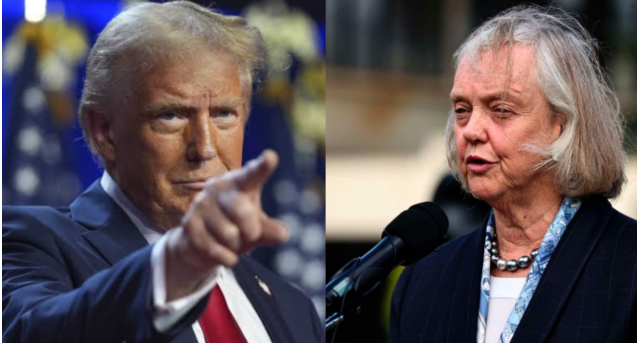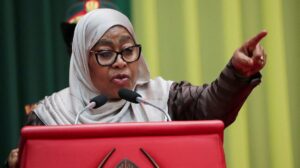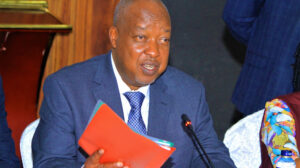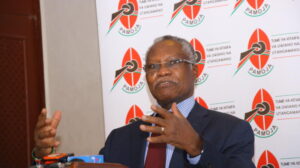With the former U.S. President Donald Trump returning to the White House, speculation is rising around whether U.S. Ambassador to Kenya Meg Whitman’s tenure would continue.
For some Kenyans, a change in leadership at the U.S. Embassy could be a welcome shift, especially amid criticisms of Whitman’s approach to human rights issues and her stance on police violence and other abuses in Kenya.
According to a post on X by Gitobu Imamyara, her diplomatic style, which has been seen as reserved on critical issues affecting Kenyans, contrasts with the public condemnation many activists believe the situation requires.
Whitman has recently come under scrutiny for her cautious diplomatic approach, particularly for her decision not to join a collective statement from Western envoys condemning police violence, abductions, and forced disappearances reported during Kenyan protests.
In these protests, triggered by grievances over rising living costs and government policies, cases emerged of young Kenyans allegedly detained or disappearing under suspicious circumstances after participating in demonstrations.
Activists, as well as families of the missing, have called for stronger international support, including more vocal condemnation from influential diplomats like Whitman.
Although Whitman has raised concerns regarding police overreach and surveillance issues, her critics argue that her strategy is too understated.
Her primary method has been private dialogues, engaging with Kenyan officials including President William Ruto to address police accountability and citizen protection.
Her absence from the recent joint statement on police abuses has disappointed many human rights advocates, who hoped for more direct U.S. involvement in challenging Kenya’s handling of human rights issues.
For these critics, Whitman’s preference for behind-the-scenes diplomacy falls short, especially when public pressure might foster accountability.
Adding to concerns, Whitman’s tenure has coincided with controversies surrounding privacy rights in Kenya, as reports surfaced that the Kenyan government authorized police access to private data without consent, ostensibly targeting individuals critical of the administration.
Whitman has voiced disapproval of such measures and has urged Kenyan authorities to uphold democratic freedoms, yet her statements lack the strong rebuke some believe is necessary to effect change.
Human rights advocates argue that, as privacy rights violations and abuses directly affect the well-being of citizens, the U.S. ambassador should have taken a firmer stand, using her position to exert diplomatic pressure.
For Kenyans who have been disillusioned with Whitman’s tenure, Trump’s potential return to the White House raises the prospect of a new ambassador someone they hope might adopt a more vocal stance on human rights.
Advocates for stronger U.S. involvement view the prospect of a new ambassador as a chance to push for more active support from the U.S. in addressing Kenya’s challenges with police accountability and civil rights protection.
Many hope that a new U.S. representative might prioritize an assertive response to human rights abuses, contrasting with Whitman’s more restrained, behind-the-scenes approach.
The question of how U.S. diplomacy in Kenya might change with a new ambassador is also linked to how Trump, if re-elected, would shape U.S. foreign policy.
Trump’s previous administration demonstrated selective engagement with human rights issues, focusing more on strategic partnerships and economic ties.
Should his administration appoint an ambassador aligned with this approach, there is no guarantee of a stronger stance on human rights abuses. However, some Kenyans speculate that the current dissatisfaction with Whitman’s tenure means any change could be an opportunity for a more engaged diplomatic approach.
OvWhitman’s cautious approach reflects broader challenges of diplomacy in a politically charged environment, where balancing U.S. strategic interests with active support for human rights can be difficult. Yet, for Kenyans directly affected by state actions, the hope remains that U.S. diplomacy will increasingly align with the demand for accountability and justice in Kenya. Whether Trump’s possible return will lead to the appointment of a more assertive U.S. representative, however, remains to be seen, as Kenyans await any diplomatic shifts that might bring stronger support for human rights.





















Add Comment